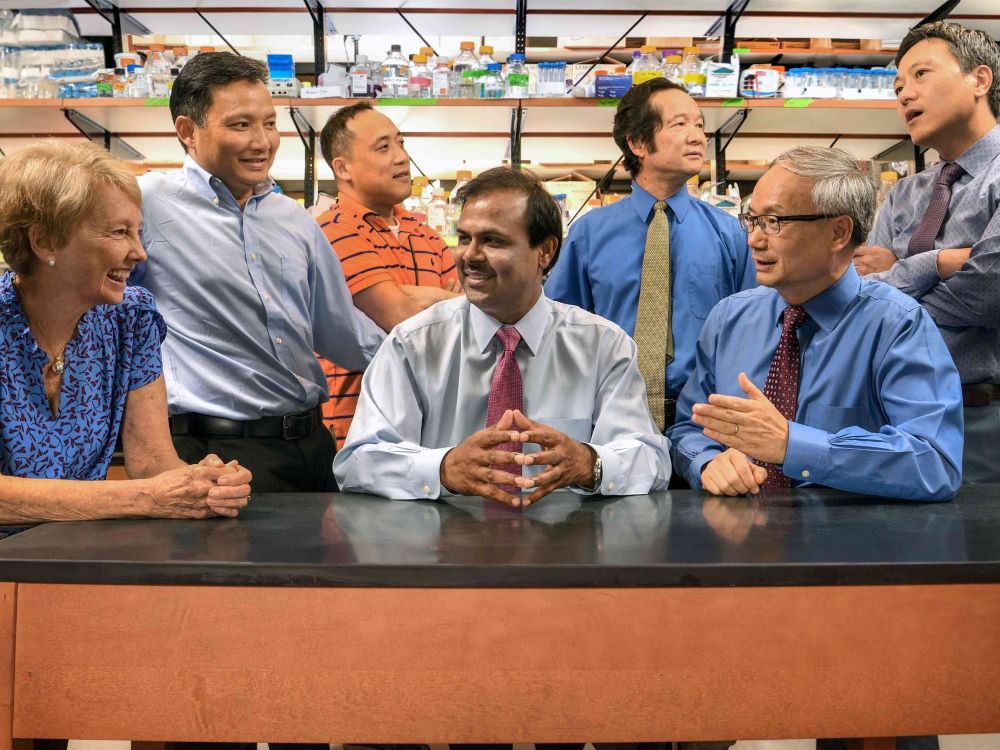Georgia CTSA Provides Valuable Research Ethics Consulting

“A Georgia CTSA research ethics consultation is free, easy, confidential, and non-committal. You’re simply talking to a colleague. A researcher can even text me for an opinion,” says Rebecca D. Pentz, PhD.
Trained first as a philosopher and coupled with decades of experience in clinical and research ethics, Rebecca D. Pentz, PhD, Georgia CTSA Research Ethicist and Professor of Hematology and Oncology in Research Ethics, Winship Cancer Institute, shares her expertise with investigators regarding ethical issues in their research. One of Dr. Pentz’s opinions was published in September 2021 on the blog of ECOG-ACRIN, a National Cancer Institute-sponsored group. She offered her ethical opinion on certain aspects of sharing trial results. This opinion germinated from a talk she gave for a National Academy of Sciences workshop. Afterward, a patient advocate asked whether participants should know the arm to which they are assigned in a randomized clinical trial. Pentz wrote a detailed opinion which was then published in this blog.
Dr. Pentz is one of the primary ethicists of the Georgia CTSA Regulatory Knowledge and Support program that provides the Georgia CTSA and Winship Cancer Institute’s Ethics Consultation service to investigators. This service is designed to assist faculty, staff, and students at Emory, Georgia Tech, MSM, and UGA. The ethics team handles issues throughout the research process, including questions on protocol design, informed consent, and ethical questions that arise throughout the study.
When describing the range of issues the team has addressed, Dr. Pentz says, “We’ve handled questions around the design of the trial and issues that arise during implementation. Researchers have asked for help in dealing with incidental findings when they find something they didn’t expect. There have been discussions related to issues in publication, co-authors, and grant review questions that had ethical implications. We even helped write a response when a grant reviewer accused the grant applicant of being unethical. It was clear the reviewer didn’t understand the ethical principles for this particular kind of trial, so we wrote the response.”
Dr. Pentz stresses the ease of working with the ethics team. She often takes questions from researchers by text or email, and all questions are anonymous and replies are confidential. This ethics consultation is free to any investigator and provides a recommendation which the investigator can then consider as they make their final study decisions. These research ethicists can also refer investigators to a clinical ethicist or the IRB, if more appropriate.
The Ethics Consulting group includes Dr. Pentz and several other leading ethicists that provide a wide breadth and depth of knowledge and experience. “One of the strengths of our team is the different capabilities and backgrounds that we each bring to a case. I am a PhD in philosophy, while Dr. Dickert is a cardiologist who speaks expertly on both a case’s medical and ethical issues. Dr. Borenstein brings his biomedical experience, Dr. Vong has a focus on philosophical bioethics, and Dr. Banja’s research interests are patient safety ethics, artificial intelligence, forensic ethics, and neuroethics. All of these different skill sets and interests come together to help us provide a balanced, informed response to our investigators,” remarks Dr. Pentz.
While the ethics group receives ongoing requests for opinions, the team has been consulted heavily during the pandemic. Dr. Pentz adds, “We were asked if children with cancer could be given priority to receive the COVID vaccine prior to its full regulatory approval. Two colleagues and I also served on a committee to develop triage allocation guidelines. The way the guidelines were originally written, cancer patients would be disadvantaged because their cancer would be considered a disability, which it isn’t. We worked hard to amend the guidelines and wrote an article to share our opinion that was published in the October 2020 issue of The Oncologist.”
The Ethics Consultation service is offered as one resource by Georgia CTSA’s Regulatory Knowledge and Support (RKS) program. RKS coordinates a wealth of resources for both new and experienced researchers to aid in navigating the regulatory and compliance process. Its services include a Coordinating Center to facilitate its use, guidelines on IRB use and partner reciprocity, a research toolkit, and opportunities for a Studio Consultation with in-house experts.
The Georgia CTSA is a statewide partnership between Emory, MSM, Georgia Tech, and UGA and is one of over 60 in a national consortium striving to improve the way biomedical research is conducted across the country. The consortium, funded through the National Center for Advancing Translational Sciences (NCATS) and the National Institutes of Health's Clinical and Translational Science Awards, shares a common vision to translate laboratory discoveries into treatments for patients, engage communities in clinical research efforts, and train the next generation of clinical investigators.